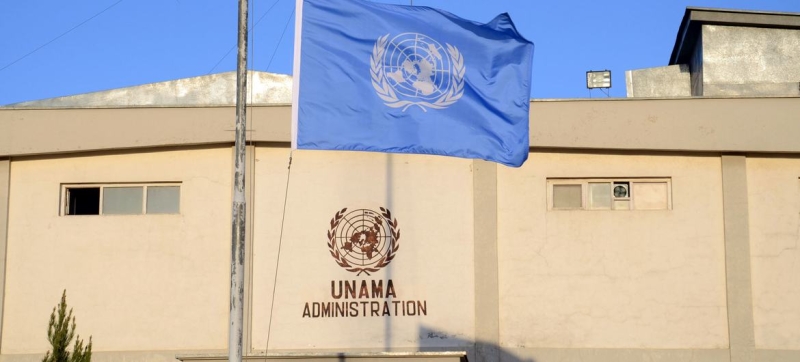
UN mission headquarters in Kabul. UN expert: public execution in Afghanistan is a “clear violation of human rights” Human Rights
A public execution carried out at a sports stadium in Afghanistan on Wednesday has drawn condemnation from the United Nations, who called on the de facto authorities to immediately end the practice. Since the Taliban seized power in August 2021, public executions, floggings and other forms of corporal punishment have been reintroduced in the country, despite human rights standards and serious concerns from experts and the international community.
The execution, which took place in Gardez, Paktia province, constitutes a “clear violation of human rights” and sends a worrying signal, according to the UN Special Rapporteur on human rights in Afghanistan, Richard Bennett.
“I condemn today’s horrific public execution,” Bennett said on his social media page. “These brutal punishments are clear violations of human rights and must stop immediately,” he added.
Call for a moratorium
The United Nations Assistance Mission in Afghanistan (UNAMA) stressed that “public executions are contrary to Afghanistan’s international human rights obligations and must stop.” The mission called on the de facto authorities to “immediately impose a moratorium on all executions with a view to eventually abolishing the death penalty.”
“We also call for respect for due process and fair trial rights, in particular access to legal representation,” UNAMA said.
Deteriorating human rights situation
The public execution reflects a broader trend of deteriorating human rights in Afghanistan. Since seizing power in 2021, the Taliban have issued more than 70 decrees and directives, including restricting girls’ access to primary education, banning women from most professions, and banning them from parks, gyms, and other public spaces.
Read also:
INTERVIEW | “The Taliban’s attitude toward women is un-Islamic”
In September, UN Special Representative for Afghanistan and UNAMA Chief Roza Otunbayeva told the Security Council that while the de facto authorities had “ensured a period of stability,” they were “exacerbating the crisis with policies that do not sufficiently focus on the real needs of their people.”
